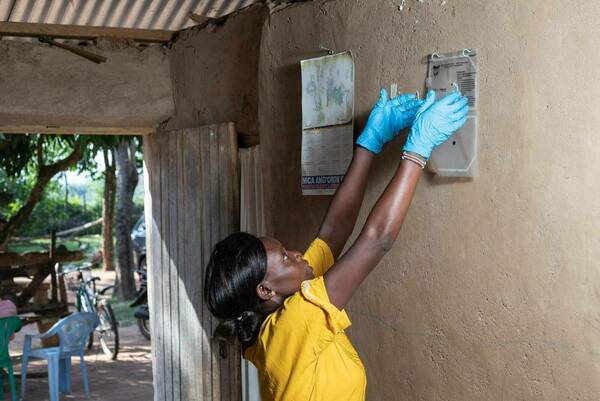Network biology connects the dots for human health
Networks form the backbone of transportation infrastructure, communication systems, and even the neurons in our brains. When computational scientists map data points into networks—quite literally connecting the dots—the patterns they reveal can provide significant insights.
In network biology, computational and biological scientists collaborate to find the patterns in abundant and complex molecular and biomedical data. They use graph algorithms, machine learning, and artificial intelligence to model biological mechanisms, including those underlying cancer and aging.
“Similar to a car manual, networks show you the relationship between the parts,” said Tijana Milenkovic, network biology expert and Frank M. Freimann Collegiate Professor of Engineering in the Department of Computer Science and Engineering at the University of Notre Dame.
“You see how each part of a biological system—gene, protein, neuron—contributes to the system’s overall performance and what happens if a part fails or is removed.”
In a paper published in Bioinformatics Advances, Milenkovic and 36 other researchers from over 25 universities and labs chart a comprehensive roadmap for network biology’s current state and future directions.
Networks allow researchers to represent biological systems as interconnected entities rather than collections of individual components. Biomolecules, such as DNA, amino acids, or proteins, are represented as points on a network while the links between the points indicate their interactions—physical, functional, or chemical.
Network biology promises to move medicine beyond its current one-size-fits-all approach. Instead of giving the same treatment to all patients with the same disease, treatments could be tailored to each individual’s unique molecular profile.
Also, networks show how a drug interacts with multiple biological targets, thereby revealing the ways in which a drug previously used to treat one condition might have the potential to treat another.
The paper, which originated from an NSF-funded workshop at Notre Dame, identifies five prominent research subfields within network biology: inference and comparison of biological networks, multimodal data integration and heterogeneous networks, higher-order network analysis, machine learning on networks, and network-based personalized medicine.
Milenkovic noted that, despite numerous advances, challenges remain in the field, such as enhanced data generation, developing novel algorithms, refining evaluation frameworks, and a wider adoption of innovations.
“The goal is not just to predict likely interactions between biomolecules or identify interesting patterns in complex data,” said Milenkovic. “We want to help explain the underlying biological mechanisms that yield these patterns.”
Latest Research
- NSF Cyber SMART’s fall meeting shapes fifth year of project, legacy and future plans, and adds new memberThe U.S. National Science Foundation (NSF) Cyber SMART center gathered for its fall meeting on the University of Notre Dame campus this September. The meeting served as a checkpoint with progress reports and new projects from research leads and students…
- Slavic and Eurasian studies professor wins Humboldt fellowship to research how Russia’s religious past shapes its presentWhen Russia invaded Ukraine on Feb. 24, 2022, Sean Griffin realized his second book needed a new title. Griffin, an associate professor in the University of Notre Dame’s Department of…
- Notre Dame’s R.I.S.E. AI Conference builds interdisciplinary collaboration to inform human-centered artificial intelligenceAs artificial intelligence (AI) transforms nearly every sector of society — from healthcare and education to governance and global development — a critical question emerges: How can we conscientiously design and deploy these powerful technologies to positively impact society? This…
- University of Notre Dame joins the Global Coalition of Ukrainian StudiesThe University of Notre Dame has joined the Global Coalition of Ukrainian Studies after signing a Memorandum of Cooperation (MOC), formalized on September 24, 2025, at the Ukrainian Institute of America in New York City. Notre Dame joined four other American…
- The University of Notre Dame’s Mendoza College of Business and Industry Labs team up to inspire national security manufacturing competitiveness in the regionThe South Bend - Elkhart Region is full of manufacturing companies that are poised to grow, and Executive Master of Business Administration (EMBA) and Master of Business Administration (MBA) students at the University of Notre Dame are finding innovative ways to contribute to that growth. Earlier…
- Notre Dame research informs WHO conditional recommendation for spatial repellents in malaria vector controlThe World Health Organization (WHO) recently announced a “conditional recommendation” for spatial emanators, also known as “spatial repellents,” in the fight against malaria. This key determination was informed by spatial repellent studies that included the Advancing Evidence for the Global Implementation of Spatial Repellents (AEGIS) Project in Kenya, led by the University of Notre Dame and funded by Unitaid. The findings from this particular study were recently published in The Lancet.













